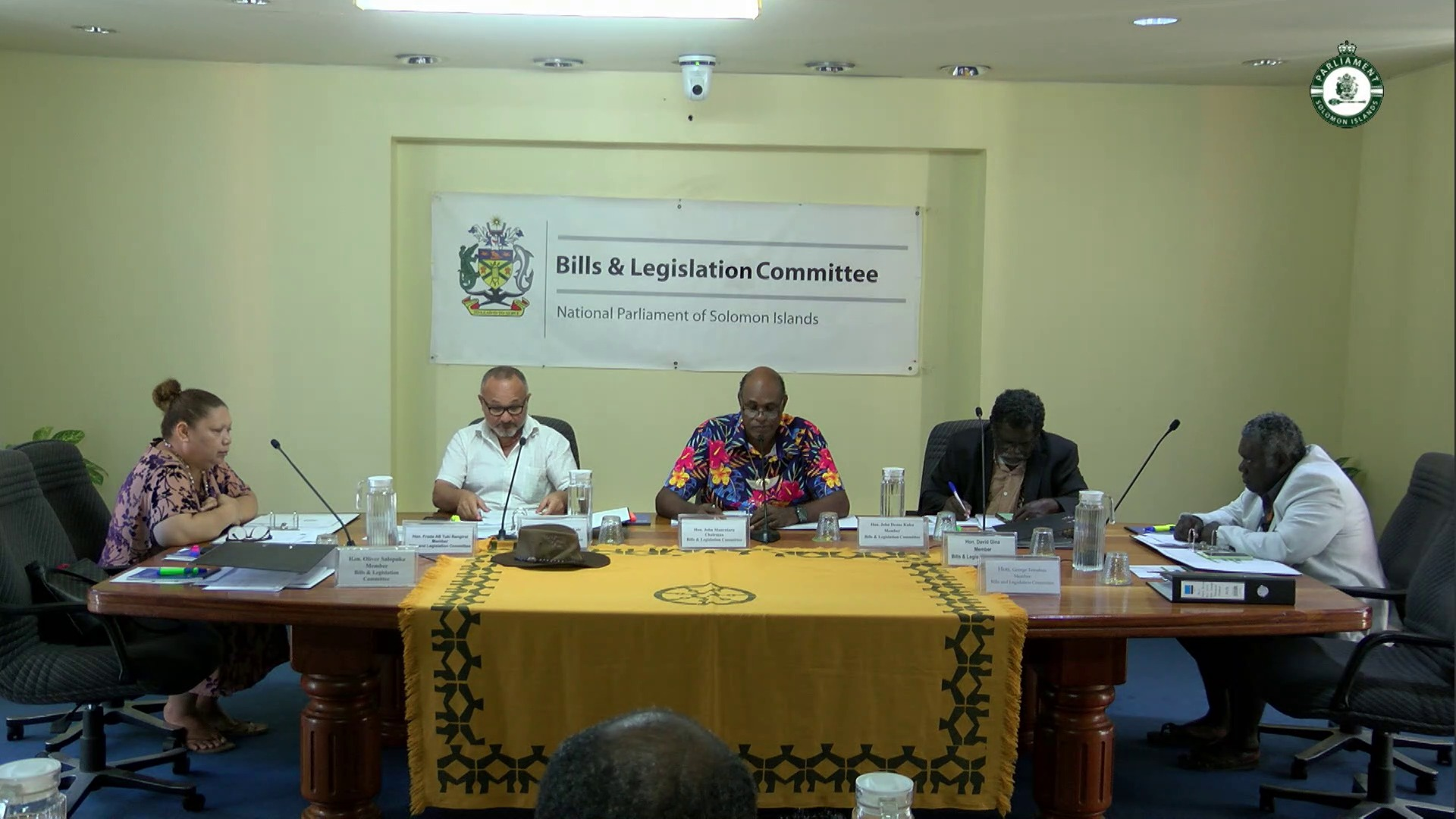
by Ednal Palmer
Permanent Secretaries froze before the Bills and Legislation Committee (BLC) on Monday, when pressed on how political pressure compromises their independence and weakens the public service.
The BLC, chaired by Opposition leader Mathew Wale, convened to hear submissions on the Public Service Bill 2025.
But when Wale pressed the nation’s top bureaucrats on the political contracting of their positions, most were visibly reluctant to speak.
“Previously, these posts were permanent. Now, it’s contractual. Does it work for you? You are the head of the administrative government, but you are appointed politically and vulnerable.
“How do you manage the blurred line between politics and administration? Should there be safeguards so PSs can carry out their duties without political backlash?” Wale asked.
Instead of direct answers, PSs dodged the question. Some muttered a few words, others fell silent — a phenomenon that exposed just how fragile and politically exposed their roles have become.
Home Affairs PS Jeffrey Sade Deve admitted bluntly that the word “Permanent” no longer applies to the job.
Education PS Dr Franco Rodie reduced the issue to “stewardship and trust” between PSs and ministers.
Health PS Pauline McNeil suggested ministries should at least be supported by legal and compliance officers.
But Wale cut through the deflections: “A robust system that protects PSs to perform freely within the law cannot be built on personal relationships. We are accountable officers. When something is wrong, we have a duty to advise ministers accordingly.”
The hearing grew more uneasy when Clause 42 of the Bill was raised. That clause shifts performance reviews of PSs to “a committee at the Office of the Prime Minister” — a political office.
The Bill does not state who will make up the committee, opening the door for direct political interference.
Here, the PSs split nervously.
Dr Rodie argued the reviews must remain with the Public Service Commission (PSC), describing it as the only professional and independent body to safeguard the process.
“Let the PSC do it, not the OPMC,” he said.
PS Deve agreed, insisting PSC oversight is critical to preserve integrity.
Others, however, supported reviews at the OPMC, but only by the Secretary to the Cabinet, who also issued their contracts, but not by a political committee.
Still, Clause 42(7) makes clear: the OPMC committee will review PSs first before forwarding its recommendations to the PSC. In effect, the PSC would merely rubber-stamp political decisions.
The spectacle of muted responses, nervous glances, and hedged answers confirmed what many feared: Permanent Secretaries — once the backbone of an independent public service — are now caught in the grip of political control.
